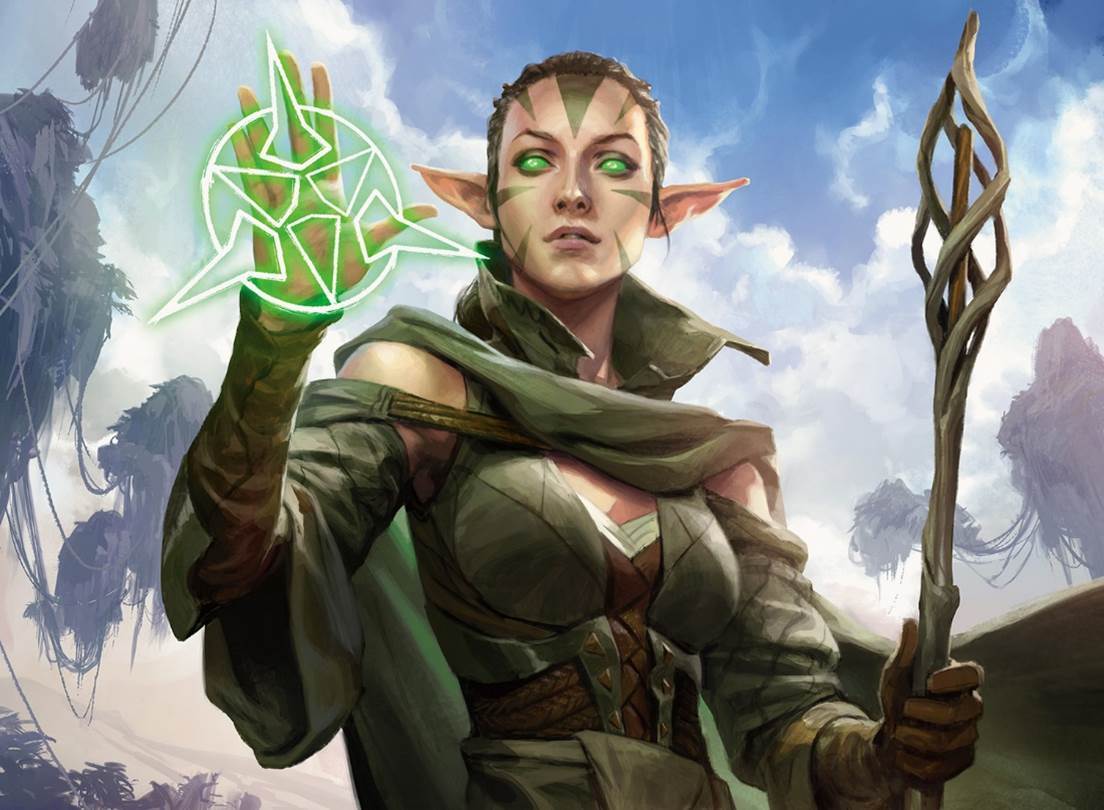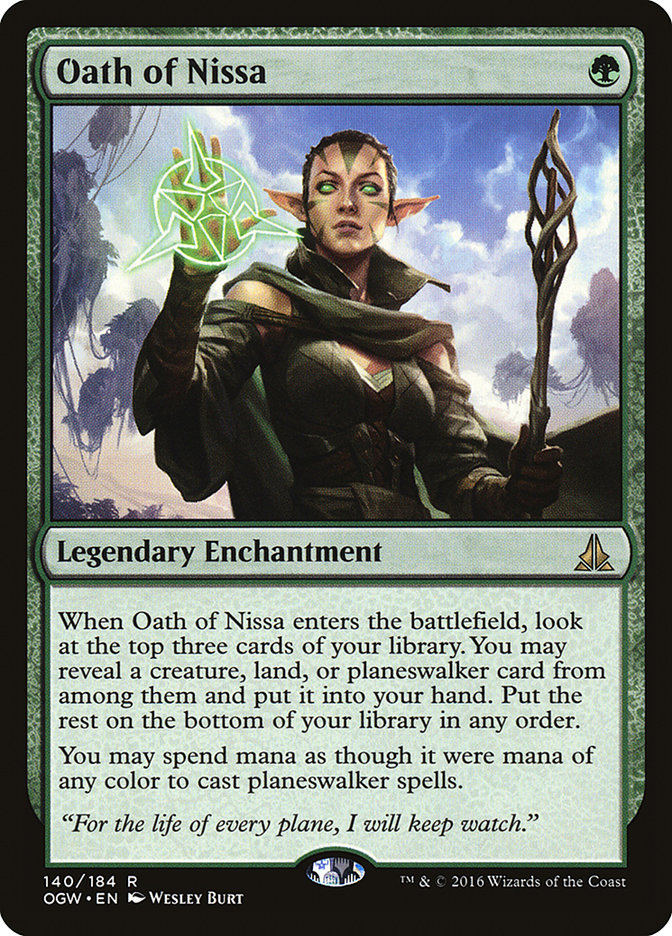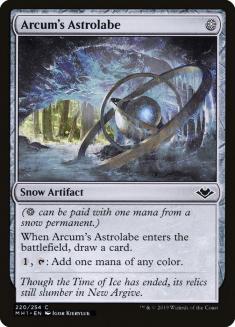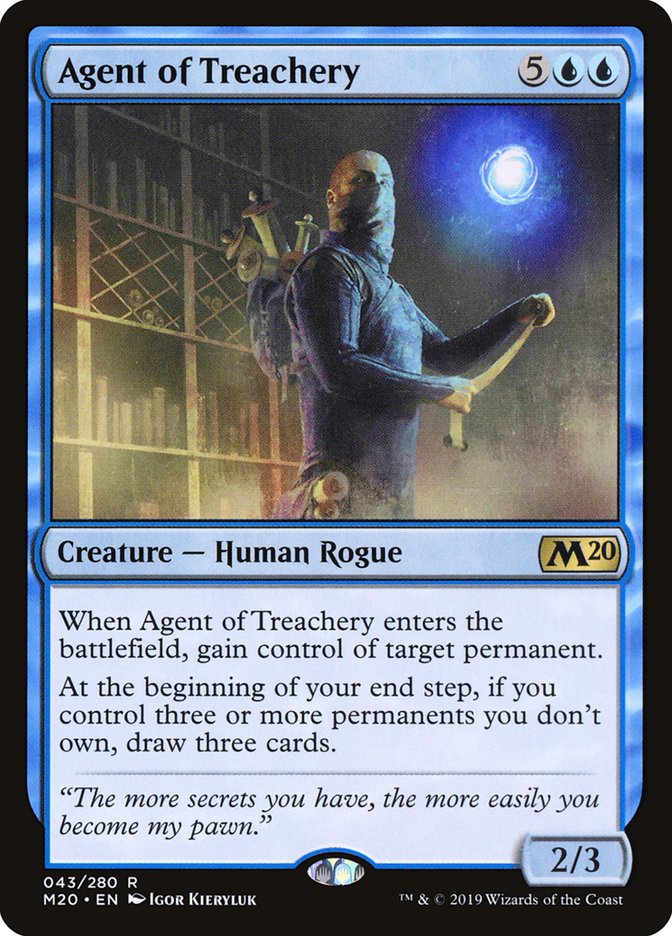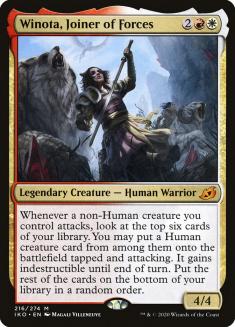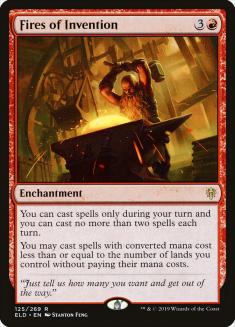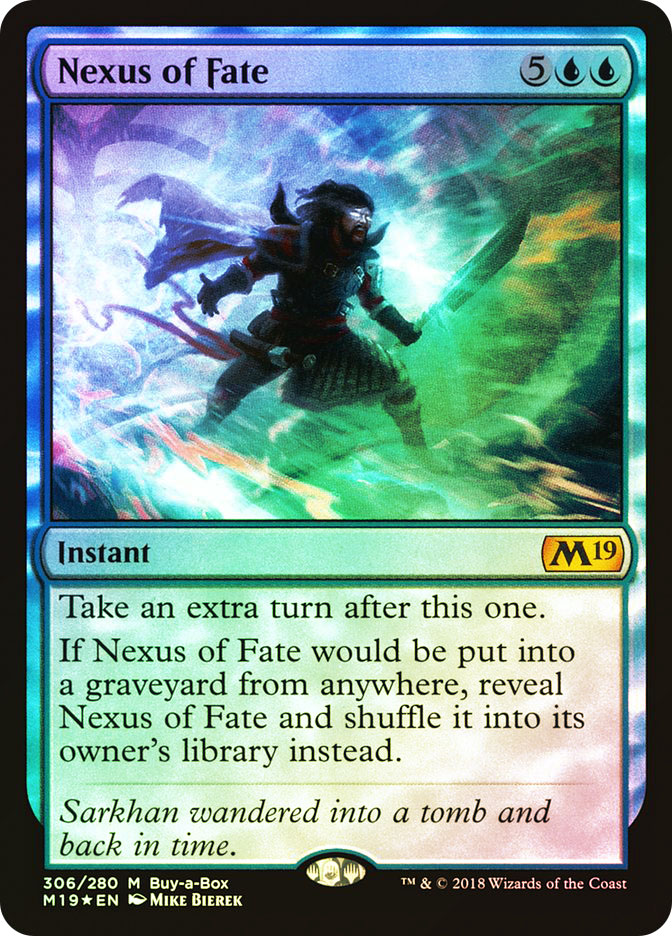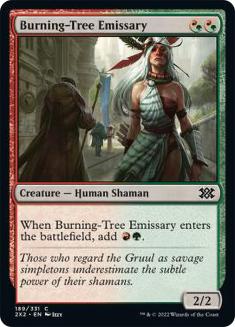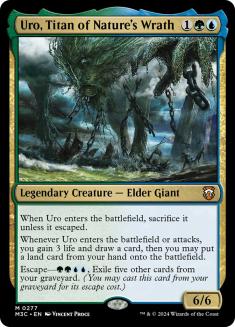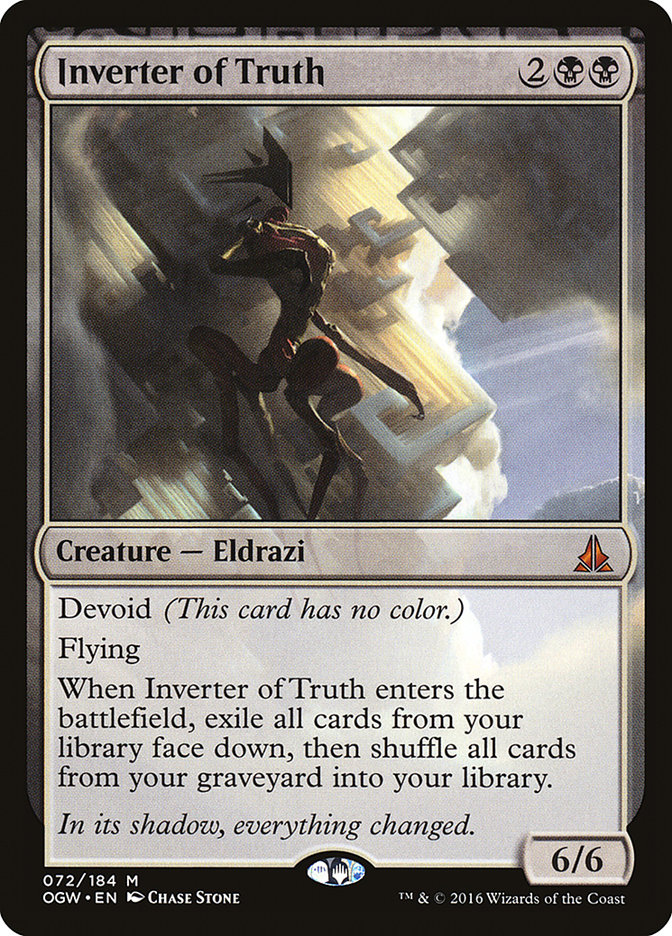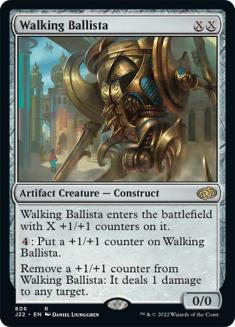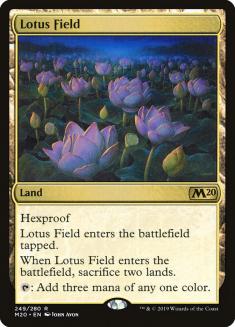Welcome to another edition of Fact or Fiction! Today, Bryan Gottlieb, Dom Harvey, and Sam Black are here to give their takes on five statements on the July 13th Banned & Restricted Announcement. Don’t forget to vote for the winner at the end!
1. Unbanning Oath of Nissa in Pioneer was a good decision.
Bryan Gottlieb: Fact…ish. If the alternative to unbanning Oath of Nissa is the absence of any action, then unbanning Oath of Nissa is a fine call. There’s a small chance that adding Green Devotion decks back into the format could inspire healthy metagame churn. Oath of Nissa has the potential to upgrade other creature combo decks as well. Both Winota Combo and Kethis Combo stand to benefit from the return of Oath of Nissa. Whether these two decks are a net positive to the format remains to be seen. I’m skeptical.
However, as far as tolerable unbans go, this is probably the best of the Pioneer Banned List. I’m going to give the most favorable interpretation of this decision I can, and assume the goal was to alter Pioneer without yet another assault on consumer confidence in the form of a banning. Under that pretense, this seems like the only acceptable option. However, adding Oath of Nissa isn’t how you get people to come back to a format which is rapidly become irrelevant.
Dom Harvey: Fact. Oath of Nissa was originally banned for Once Upon a Time’s and Felidar Guardian’s sins and I doubt this unban will unleash any new horrors on Pioneer. That said, I think it only serves to improve a type of gameplay that already defines the format. If Kethis Combo fights Lotus Breach for the title of best combo deck and Mono-Green Devotion makes a resurgence, fans of Bloodsoaked Champion or Bonecrusher Giant still have a lot to complain about. If Oath of Nissa doesn’t make an impact, we’re back where we were — in a format that nobody wants to play without sweeping changes that were missing from this announcement.
Sam Black: Fact. Oath of Nissa was never the real problem. Green Devotion was just much better than the other decks that existed at the time and now enough other green cards have been banned that it doesn’t seem like much of a risk compared to the rest of the format. Oko, Thief of Crowns’s banning is particularly important here as it, in conjunction with Felidar Guardian’s ban, means we don’t have to worry about four-color planeswalker piles, and Oath of Nissa lost one of the two best cards it would be looking for, the other being Nykthos, Shrine to Nyx.
In general, I don’t love the mana in Pioneer (don’t read this as saying I want fetchlands to fix it), and appreciate that Oath of Nissa can help that a little.
Overall, I’m not sure that Oath of Nissa will really shake up the format, but I’m just not really afraid of it at this point, so it makes sense to take it off the Banned List. I’m interested to see if it leads to Inverter of Truth decks shifting toward Sultai with Uro, Titan of Nature’s Wrath, and also tempted to see if it ends up being played with Lurrus of the Dream-Den or Yorion, Sky Nomad (either in maindecks or as companions).
2. Banning Arcum’s Astrolabe in Modern was a good decision.
Bryan Gottlieb: Fiction. Hot take alert! Modern has been defined by linearity and a lack of interactivity for most of its existence. I understand that this is what a large majority of its player base likes and enjoys, but for people wanting something resembling classic Magic, Modern has been a miss at all but a few points.
Until today, we were at one of those points. There’s no question that Arcum’s Astrolabe is a design atrocity. It eradicates an important systemic constraint on the game while invalidating one of the most storied and expressive parts of Magic — basic lands. However, Modern is mostly about ignoring what Magic is “supposed” to be. Dredge, Amulet Titan, Mono-Green Tron, Ad Nauseam, Gifts Storm… the list goes on and on. To keep pace with the utter nonsense of the format, fair decks needed an incredible variety of tools. Arcum’s Astrolabe was the key.
I’m not trying to argue that Arcum’s Astrolabe is a reasonable Magic card. It’s truly unacceptable on a lot of levels. Context is everything though, and Arcum’s Astrolabe was mostly creating interesting games of Magic that felt unlike anything else in Modern. Unlocking Cryptic Command and Archmage’s Charm in three-color decks might be the only way to make control viable. If control was truly outpacing the field, I would have taken out Uro, Titan of Nature’s Wrath and forced control decks to make meaningful deckbuilding decisions about their end-game and deal with the vulnerability of having to play expensive spells on-curve.
Some amount of countermagic in the format is a net positive. No card besides Arcum’s Astrolabe can create the necessary incentives to play defensively. When the format is back to a linear nonsense-fest is a month, you’ll know why.
Dom Harvey: Fact. Arcum’s Astrolabe is never the flashiest card in the decks that beat you with it — Uro, Titan of Nature’s Wrath; Urza, Lord High Artificer; or some other above-rate mythic seems more directly responsible. Arcum’s Astrolabe is what enables those cards to do their damage — often in the same deck! — at minimal cost in deckbuilding, erasing the choices that keep that an interesting exercise.
You could frame that differently —Arcum’s Astrolabe opens up possibilities for combining cards in unprecedented ways — but I think its history in Modern tells a different story, on balance. Now, when my opponent plays a non-Snow basic land with sweet art from 1998, that tells me something about them that isn’t “they didn’t get the memo about Arcum’s Astrolabe.”
Sam Black: Fact. Arcum’s Astrolabe exacerbates a lot of other problems and makes decks bleed together into all playing the same cards too much. Urza, Lord High Artificer and Yorion, Sky Nomad may not be dominating the format at the moment, but neither needs the help and I’m happy to see that tool taken away from them long-term.
More importantly, this is a big step toward weakening Mystic Sanctuary, which really needed the hit. Ultimately, I think Mystic Sanctuary will need to be banned, so I’m happy to see it taken out of Pauper as an indication that it’s on their radar and that they’re willing to act. I also understand how Arcum’s Astrolabe is the clearer first step and then waiting to see how Mystic Sanctuary plays without it, but I’m not optimistic that it’ll really fix the problem, since now there’s just less pressure to play basic non-Islands.
One outcome I don’t love is that this will make Blood Moon a much more powerful answer against Mystic Sanctuary decks, which might be good for metagame balance, but I think it’s the card in Modern with the worst gameplay and I hate putting more pressure on it.
3. You’re happy with the update to the Historic Banned & Suspended list.
Bryan Gottlieb: Fact. The Historic format is just beginning to generate interest. Dealing with the outlier decks created by increased attention is to be expected at this stage. These bans do exactly that, obliterating the best deck in the format and substantially nerfing its only challenger. These bans feel focused on keeping the environment fun as much as healthy. Both Nexus of Fate and Burning-Tree Emissary are cards with the potential to inspire rage-quits. Good riddance.
I still have no idea what the goal is with the suspension framework, but I’m just going to assume we keep banning whatever gets suspended and we’ll get rid of the confusing policy a few months down the road when it becomes crystal-clear it isn’t accomplishing much of anything.
Dom Harvey: Fact, I guess? Some nonsense cards finally get a life sentence and the two decks throttling the format get taken down a peg. Nexus of Fate was the most obnoxious feature of its namesake deck and the card that catapulted it into the format’s top tier, but it wouldn’t shock me if Wilderness Reclamation continued to be as dominant in Historic as it has been in Standard. Some successful Gruul lists had cut Burning-Tree Emissary due to its weakness in the mirror, but it improved other matchups enough by enabling explosive starts that this suspension makes sense.
The length of the explanation for this update compared to, say, Pioneer suggests that Wizards of the Coast is focusing its attention on Historic ahead of its debut on the competitive scene with the Mythic Invitational. If this is the level of detail we can expect for these decisions, that’s a promising sign for Magic’s newest format — but it’s still unclear what Historic will or should look like when the dust settles.
Sam Black: Fact. Suspension is supposed to be temporary, and I agree that all the cards that were moved to the Banned List would be miserable to see come back.
Nexus of Fate is a stupid card, and I’ll never be sad to see it leave a format. The cost to flip decking yourself from a loss to a win is too low, and even if Wilderness Reclamation has been banned, I hate the play pattern with Tamiyo, Collector of Tales, and I’m generally sick of The Growth Spiral Experience that is Standard and would prefer to minimize the extent to which putting lands on the battlefield is a win condition in Historic.
That said, I think if I could only ban one of Wilderness Reclamation and Nexus of Fate at this exact moment, I’d have hit Wilderness Reclamation just to increase differentiation from Standard, but that’s shortsighted and it’s pretty weird to differentiate formats by taking a strong card away from the more powerful format. So banning Nexus of Fate seems more responsible.
I’m less sure about Burning-Tree Emissary, but so are they. It’s only suspended and that makes total sense to me. Burning-Tree Emissary is a unique effect in the format, and if it’s propping up one of the top decks and they’re concerned that that deck will take over when the other top deck got hit by a ban, I see no harm in taking a break from that card.
4. Additional changes should have taken place on the Modern Banned List.
Bryan Gottlieb: Fiction. Modern tournaments on Magic Online continue to fire. The player base seems generally happy. Sure, there are plenty of nonsensical decks that should not be allowed to exist up and down the tiers of the metagame, but we’ve come this far. Why change now?
This looked like a typical Modern format, and with the absence of premier play, there hasn’t been much incentive to try to attack the top tiers. I would have left well enough alone and let Modern have some stability for a while.
Dom Harvey: Fact. At the risk of repeating myself, Mystic Sanctuary is one of the most egregious mistakes from the past year. This announcement does a good job of justifying its ban in Pauper but that makes it even more frustrating that this logic isn’t extended to other formats where Sanctuary is just as repetitive and oppressive. You may not have the choice of cards from four different colours to recur with your fetchland now that Arcum’s Astrolabe is gone, but expect to see Archmage’s Charm or Supreme Verdict (or, god forbid, Terminus…) jumping between zones at the perfect time for as long as Mystic Sanctuary is legal.
Sam Black: Fact. As I said above, I think Mystic Sanctuary will have to go eventually, and while on first pass I was thinking banning Arcum’s Astrolabe to make it harder to splash one-mana removal might be enough to keep it in check for a bit, I really convinced myself that I’d prefer to see it go now with the point about Blood Moon.
We might not see Mystic Sanctuary decks dominate, but if the cost to keeping them in check is that there are more Blood Moons played in the format, I’m not happy about that outcome. The worst result is that Blood Moon rises enough to keep Mystic Sanctuary suppressed enough to avoid a ban and we just have a format with a lot more Blood Moon games than we’d otherwise have.
5. Additional changes should have taken place on the Pioneer Banned List.
Bryan Gottlieb: Fact. Unlike Modern, Pioneer tournaments on Magic Online are not firing. The player base has been vocally frustrated for a while by the presence of both Dimir Inverter and Lotus Breach. They are speaking with their wallets and refusing to play. And yet, it seems like WotC went with the absolute safest approach possible.
Pioneer seems like a long-term part of the plan for Magic Arena, and if you’re banking on its continued popularity selling Masters set after Masters set, the time to act is now. The stubborn reliance on win-rate data over the far more important player engagement data is truly baffling here. There are simply ways the average player does not enjoy losing games of Magic. Dimir Inverter and Lotus Breach are both routinely creating those scenarios.
Today’s entire announcement felt backwards and focused on being technically correct. In Modern, it hit the horrible design mistake that was somehow bringing balance and enjoyable games to a completely nonsensical format. In Pioneer, it relied upon win-rate as a reason to ignore the most important aspect of any game — fun. I would have banned at least Dig Through Time from Dimir Inverter, and probably just gone after Inverter of Truth itself. Underworld Breach is never going to do anything acceptable, and I would have hit that card as well. Finally, I would have banned Uro, Titan of Nature’s Wrath. We all know we’re just biding our time until we are back here talking about that card. Pull the band-aid off and let Pioneer become the alternative to Standard people are looking for right now.
Dom Harvey: Fact.
Dimir Inverter is an intensely polarizing deck. For one group it’s the only thing keeping Pioneer interesting and a source of fascination even after many months — for another, it’s the menace driving them away from Pioneer until action is taken. As a rule, I think it’s dangerous to throw the first group under the bus to appease the second, but who are you meant to enjoy crushing with Dimir Inverter when Pioneer events aren’t firing on Magic Online anymore?
Lotus Breach is not an intensely polarizing deck. A handful of people constantly win with it but nobody else enjoys playing against it or rolling a die to decide how many Damping Spheres to sideboard this week. Nuke that one from orbit and send Caleb Scherer a check in the mail.
Sam Black: Fact. While the metagame looks appropriately diverse and nothing has changed to make a stronger case for an Inverter of Truth ban, the fact is that people just aren’t playing the format. I don’t see any reason to believe anyone will be exited about Oath of Nissa in the face of Inverter of Truth, so even if this does rip the scales a little, I don’t think it will bring players back to the format.
I was a major advocate for banning Splinter Twin in Modern because I dislike two-card combos that end the game on the spot, so Inverter of Truth has personally made me lose interest in Pioneer entirely. By itself, that’s not sufficient to call for action, but when no one else is playing the format either, it’s worth asking why. My best guess is going to be that they’re not playing for the same reason I’m not playing — Inverter of Truth isn’t a fun bad guy and trying to beat it isn’t a fun challenge. I’d like to see if getting rid of it could get people playing again.
After all, if events aren’t firing, there’s literally nothing to lose.

